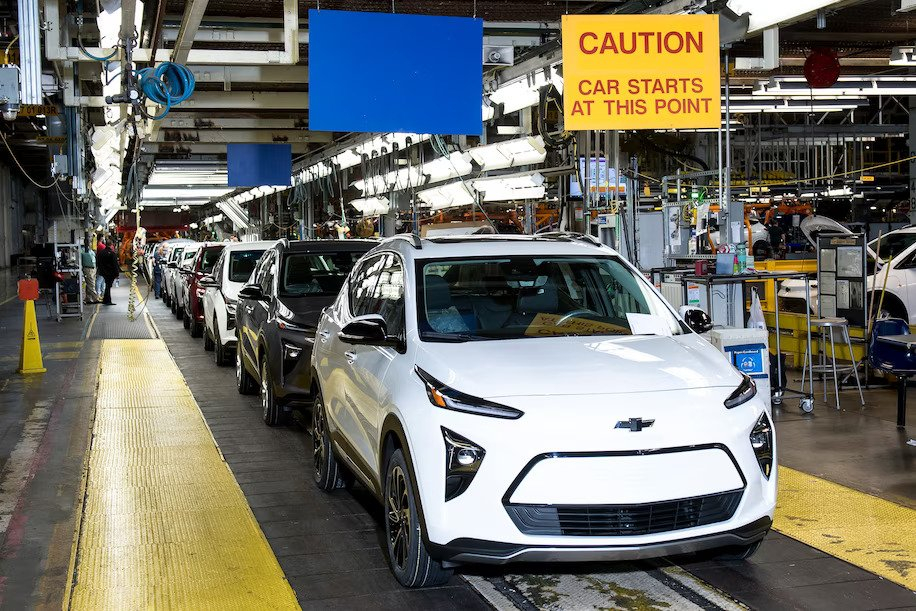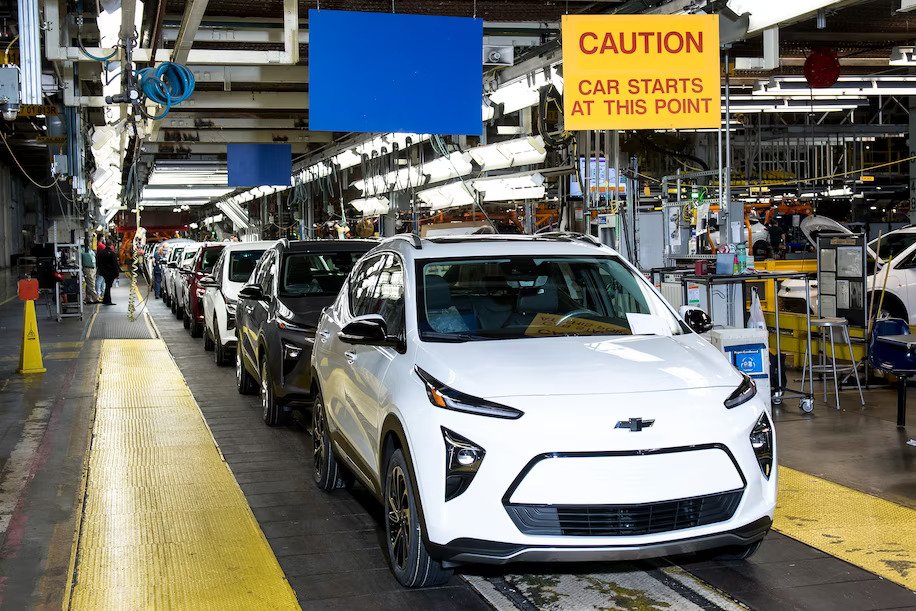General Motors said it will bring a new model of the Chevrolet Bolt electric vehicle to market on an undisclosed date, reversing its decision three months ago to scrap the company’s most popular and affordable EV.
Demand appears to have been key. “We can’t build enough Bolts right now,” chief executive Mary Barra said during the company’s quarterly earnings call.
The vehicle has also been a magnet for bringing new buyers to GM, the company said. About 70 percent of buyers who trade in a vehicle for a Bolt are trading in a non-GM vehicle, the company said.
The new Bolt will include GM’s latest Ultium battery technology, the company said. But GM on Tuesday reported new difficulties with that tech, disclosing “unexpected delays” in producing Ultium battery modules because a supplier of automated manufacturing equipment has been “struggling with delivery issues.”
Production of Ultium battery cells is “ahead of schedule,” but there are delays assembling those cells into clusters known as modules, GM said.
The company has dispatched GM engineers to the equipment supplier to speed up deliveries and is assembling more battery modules manually, Barra said.
GM built 50,000 EVs in North America in the first half of 2023, about 80 percent of which were the Bolt EV and the slightly larger Bolt EUV, which use an older, non-Ultium battery. GM is planning to build roughly 100,000 EVs in the second half, Barra said.
The company’s EV ramp-up comes amid growing competition and
price-cutting in the sector, and amid
tense contract talks with the United Auto Workers and the Canadian union Unifor. UAW leadership has suggested that those talks could lead to strikes if progress isn’t made by the time the current contract expires in September.
Among UAW concerns is the relatively low pay that workers are earning at the new Ultium battery-cell plant in Ohio, compared with workers in gasoline-vehicle factories. The Ultium plant is a joint venture between GM and South Korea’s LG Energy Solutions. The union also wants GM and other automakers to end so-called employee tiers, which put newer unionized workers on a lower pay scale than those with more seniority.
“We have a long history of negotiating fair contracts with both unions that reward our employees and support the long-term success of our business. Our goal this time will be no different,” Barra said Tuesday.
The UAW fired back with a less conciliatory message. “It’s long past time for GM to pony up, end tiers, pay their employees competitive wages that keep up with the cost of living and provide everyone the ability to retire with dignity,” UAW chief Shawn Fain said in a statement.
GM will introduce the new Bolt on an “accelerated timeline,” but said it would announce timing and more details, including the manufacturing location, later.
GM still intends to stop producing the legacy Bolt at a plant in Lake Orion, Mich., at the end of this year, a spokesman said. The company earlier said that factory would be retooled to produce electric trucks.
The decision to kill the Bolt had disappointed some EV enthusiasts, who lamented the loss of one of the market’s smallest, most affordable EVs. The sticker price starts at $26,500, with the car also qualifying for a $7,500 federal tax credit.
The Bolt has been a rare example of a car still priced less than $30,000 as new vehicles grow
more expensive, pricing many U.S. buyers out of the market.
The other electric vehicles that GM is ramping up include pricier models such as the GMC Hummer EV, the Cadillac Lyriq and the Silverado truck. The company also has
pledged to introduce an electric version of the more modestly sized Equinox SUV this fall, with prices starting around $30,000.





